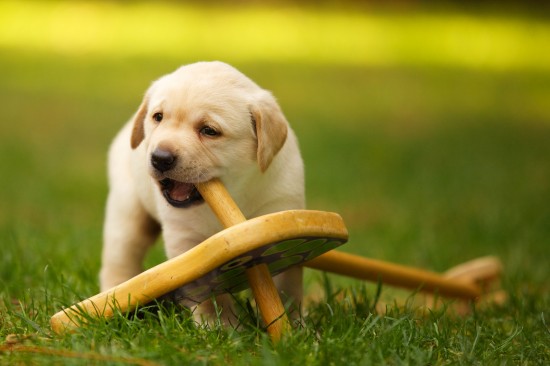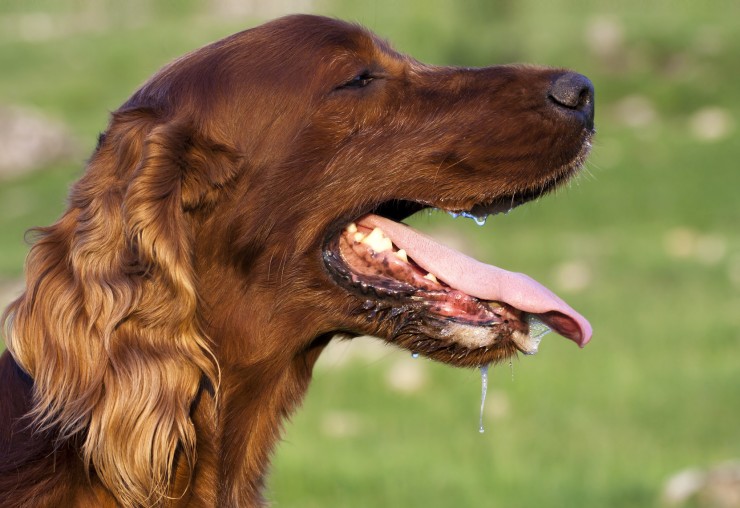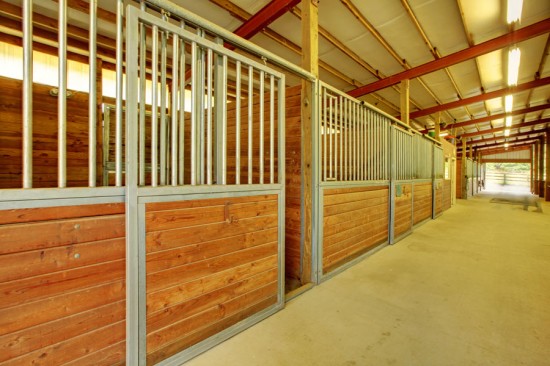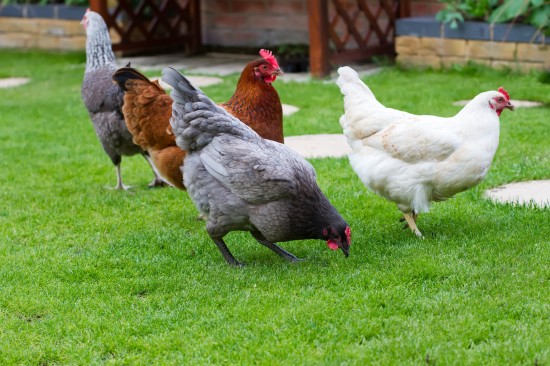Since it's always good to start from a base of knowledge when we are trying to solve a problem - any problem, we need to discuss that imponderable question - Why the heck do dogs dig?
The consensus of the sources I refer to most often, before I prepare an article, do seem to agree on the number one reason dogs dig. Boredom! As the old adage goes, idle paws are the work of the devil.
Another popular reason cited for digging is lack of exercise. Dogs with pent up energy will look for ways to burn it off. Your dog needs exercise - some more than others - but all need to be active a good part of their day.
A third reason for digging is a very familiar attribute of many dogs, especially rescue dogs who find themselves in yet another strange environment. And, it is the root cause of many negative behaviors - Separation Anxiety. If he's experienced abandonment before, your dog may do whatever it takes to avoid having it happen again in his lifetime.
So, if left in the yard untethered, he may come to the conclusion that the fence or wall or whatever is restraining him is the only obstacle keeping him from you. And, since flying isn't one of his strengths, he decides to dig his way to you.
The fourth reason probably emerged from the school of thought that "dogs will be dogs" and that's the instinct to be free, to wander, to be a vagabond, hit the rails. For this dog, digging is not the ends, but the means to an end - Freedom! He longs for the great wide open. And if he has to dig through your garden, so be it.
Okay, we just did some good research. Now, how to tackle the problem. First, don't think we just wasted our time going though the reasons dogs dig. Because we didn't. The best cure to prescribe is dictated by the underlying reason for the negative behavior.
Let's take the first two reasons together since we can actually mitigate, if not eliminate, digging resulting from both with the same solution. If your dog digs out of boredom or too much energy, simply eliminate boredom from your dog's life and voila...no more digging.
"How" you ask? Simply spend more quality time with your dog. And, when you do spend more time with him, make sure it includes plenty of activity, which should be a staple in every dog's life anyway. And, listening to all the American Medical Association statistics, there's a good chance it'll do you some good as well. Make it a routine that you'll both look forward to. Talk about a win-win situation.
As I mentioned earlier above, separation anxiety is quite common in dogs, and leads to a lot of naughty behaviors. Digging is sometimes one of them. Cure the separation anxiety and you cure the digging, and possibly the chewing, the barking, the panting, the...well, you get the idea. It's so prevalent and can have such negative consequences that I've written another separate article dedicated solely on eliminating separation anxiety from your rescue dog - Rescue Dog Training - Curing Separation Anxiety with Crate Training and Desensitization Training. A quick search on this website should find it for you.
So, if your dog is a natural "free spirit" and looks at all barriers as a personal challenge. Rather than concentrate on "curing" the desire to dig, we will be more successful if we work on ways to "prevent" your nomad from digging his way to independence. Here are several suggestions, some more practical than others:
?Restrict access to those areas that will be most harmed by digging. Chicken wire works well around shrubs, saplings, even flower beds.
?If it's the garden that is your greatest concern, select hardier flora with deep roots and thorny stems.
?I'm struggling with the most delicate way to explain this third method, but here goes. Place "dog poop" on those favorite digging spots your dog has selected. It is a natural deterrent that virtually all dogs will avoid no matter what.
?This preventive method is a bit extreme unless your dog is exposed to a very small potential digging area. Lift the sod from the digging designated areas and place chicken wire underneath the turf, one or two inches deep. While you will have to endure some temporary damage that will require repair, your dog will eventually come to the conclusion that it is futile to dig in his yard. [If you try this method and experience some success, please let me know]
If you've come to the conclusion that your dog is a truly dedicated, passionate digger, you may have to compromise. Allocate an area of your yard where you will permit digging. Replace the earth in this area with a mixture of sand and soil, the bigger and deeper the better.
Next step is conditional training.
Start by placing some marrow bones in the digging zone, and then be prepared to spend some time supervising your dog. When your pooch gets the scent and starts digging, praise him and give him a favorite treat. Whenever he tries to dig anywhere else, correct him immediately with a stern "No!" and direct him to the sandbox.
Should he start digging there again, another dose of praise is in order. Do this over the course of a week or two for 10 to 30 minutes a day, and you will have conquered the digging issue with your dog.
Make sure you are a knowledgeable dog owner who has at his disposal excellent instruction that will help you correct any negative behavior your dog may exhibit during his long, happy life. Visit my site referenced below to review the two resources I found to be most useful.

 The Different Types Of Coat & Colour Variations In Dachshunds
The Different Types Of Coat & Colour Variations In Dachshunds
 Double Dapple Dachshund Dogs And Their Problems
Double Dapple Dachshund Dogs And Their Problems
 Naughty Things Puppies Are Often Allowed To Get Up To
Naughty Things Puppies Are Often Allowed To Get Up To
 How To Know When Your Dog Is Sick
How To Know When Your Dog Is Sick
 Excessive Salivation And Drooling In The Dog
Excessive Salivation And Drooling In The Dog
 Omega 3 Supplements Can Benefit Horses With Lower Respiratory Diseases
Omega 3 Supplements Can Benefit Horses With Lower Respiratory Diseases
 Chemotherapy In Cats And Dogs: What You Need To Know
Chemotherapy In C
Chemotherapy In Cats And Dogs: What You Need To Know
Chemotherapy In C
 How Much Exercise Does My Dog Really Need?
How Much Exercise
How Much Exercise Does My Dog Really Need?
How Much Exercise
 Choosing The Right Livery Yard
Choosing The Righ
Choosing The Right Livery Yard
Choosing The Righ
 Top 4 Health Issues That Affect Cats
Top 4 Health Issu
Top 4 Health Issues That Affect Cats
Top 4 Health Issu
 Tips To Improve The Quality Of Life For Your Pet Chickens
Tips To Improve T
Tips To Improve The Quality Of Life For Your Pet Chickens
Tips To Improve T